CHAPTER I - GENERAL PROVISIONS
Article 1. Scope of regulation and applicable subjects
1. This regulation provides for the control of power, prevention and combat of corruption and negativity in investigation, prosecution, trial (referred to as litigation activities), execution of judgments and other activities related to investigation, prosecution, trial and execution of judgments (referred to as other related activities).
2. This regulation applies to Party committees, Party organizations, Party members, competent agencies, organizations, and individuals (collectively referred to as competent agencies, organizations, and individuals) in leading, directing, and implementing litigation activities, execution of judgments, and other related activities according to Party regulations and State laws.
Panorama of the closing session of the 8th Central Conference, Term XIII, morning of October 8, 2023. Photo: Phuong Hoa/VNA
Article 2. Interpretation of terms
In this Regulation, the following terms are construed as follows:
1. Litigation and judgment enforcement activities include: Receiving and handling information about crimes, initiating, investigating, prosecuting, and trying criminal cases; resolving administrative cases, civil cases, and bankruptcy cases; considering and deciding on the application of administrative measures in court; enforcing court judgments and decisions according to the provisions of the law on criminal, administrative, civil, bankruptcy proceedings, handling of administrative violations, and judgment enforcement.
2. Other activities related to litigation and judgment enforcement (other related activities) include: Appraisal, asset valuation, bidding, auction; notarization, authentication; interpretation, translation; defense, legal aid, protection of the legitimate rights and interests of victims and litigants; mediation, dialogue in court; bailiff, coordination in enforcement of judgments, amnesty; judicial assistance and other international cooperation; settlement of petitions, reflections, complaints, denunciations; protection of whistleblowers, witnesses, victims and other participants in litigation.
3. Power in litigation and execution activities is the authority of agencies, organizations and individuals in leading, directing and implementing litigation and execution activities and other related activities according to Party regulations and State laws.
4. Taking advantage of one's position and power in litigation and judgment enforcement activities is the act of an agency, organization, or person with authority in leading, directing, and implementing litigation and judgment enforcement activities and other related activities for personal gain or other personal motives, taking advantage of one's assigned position and power to violate public duties (not performing the assigned tasks or duties) in leading, directing, and implementing litigation and judgment enforcement activities and other related activities.
5. Abuse of position and power in litigation and judgment enforcement activities is the act of an agency, organization, or person with authority in leading, directing, and implementing litigation and judgment enforcement activities and other related activities for personal gain or other personal motives, using position and power to do things beyond the scope of assigned position and power.
6. Abuse of power in litigation and judgment enforcement activities is the act of an agency, organization, or person with authority in leading, directing, and implementing litigation and judgment enforcement activities and other related activities for personal gain or other personal motives that exceeds the assigned authority, or violates public duties in leading, directing, and implementing litigation and judgment enforcement activities and other related activities.
7. Corruption in litigation and judgment enforcement activities is the act of a person holding a position and authority in leading, directing, and implementing litigation and judgment enforcement activities and other related activities who takes advantage of, abuses his/her position and authority, and abuses his/her power for personal gain.
8. Negativity in litigation and execution activities is an act of degradation in political ideology, ethics, lifestyle, violation of regulations, rules, professional procedures, ethical standards, codes of conduct, and failure to properly implement the Party's policies and regulations and the State's laws.
9. Controlling power, preventing and combating corruption and negativity in litigation and execution activities is the use of mechanisms and measures to ensure strict implementation of the Party's policies and regulations, the State's laws, principles, working regulations, regulations, professional processes, ethical standards, and codes of conduct; preventing, detecting, stopping and handling violations, taking advantage of, abusing positions and powers, abusing power, corruption, and negativity in litigation and execution activities and other related activities.
10. Family relatives include husband (wife); biological father, mother, adoptive father, mother, direct caregiver; biological father, mother, adoptive father, mother, direct caregiver of husband (wife); biological children, adopted children, daughter-in-law, son-in-law; biological brothers and sisters; biological brothers and sisters of husband (wife).
11. Relatives include people with family relationships; paternal grandparents; paternal great-grandparents; paternal uncles, paternal aunts, paternal aunts, and nieces and nephews.
Article 3. Principles of power control, prevention and combat of corruption and negativity in litigation and execution activities
1. Ensure the centralized, unified, close and comprehensive leadership and direction of the Party; the supervision of agencies and elected representatives, the Vietnam Fatherland Front , law enforcement agencies, socio-political organizations and the People over litigation activities, execution of judgments and other related activities according to Party regulations and State laws.
2. Ensure that all power is strictly controlled by mechanisms and bound by responsibilities. With power comes responsibility; the higher the power, the greater the responsibility.
3. Ensure independence, objectivity, compliance with laws, regulations, working rules, professional processes, ethical standards, and codes of conduct of agencies, organizations, and competent persons in litigation, execution of judgments, and other related activities.
4. Ensure publicity and transparency associated with accountability of agencies, organizations and competent persons in litigation, execution of judgments and other related activities according to Party regulations and State laws.
5. Timely detect, prevent and strictly handle all violations, abuse of position and power, abuse of power, corruption and negativity in litigation, execution of judgments and other related activities, without forbidden areas and without exceptions.
6. Comply with the Party's policies and regulations and relevant laws.
Article 4. Contents of power control, prevention and combat of corruption and negativity in litigation and execution activities
1. Control the leadership, direction, and organization of the implementation of the Party's policies and regulations, the State's laws, working regulations, rules, professional procedures, ethical standards, codes of conduct, anti-corruption and anti-negativity work in litigation and execution activities and other related activities.
2. Control the performance of duties and powers of agencies, organizations and competent persons in leading, directing and implementing litigation activities, execution of judgments and other related activities.
Article 5. Methods of controlling power, preventing and combating corruption and negativity in litigation and execution activities
1. Lead, direct, advise on the development, promulgation, and implementation of Party policies and regulations, State laws, working regulations, professional procedures, ethical standards, and codes of conduct to control power, prevent and combat corruption and negativity in litigation, execution of judgments, and other related activities.
2. Lead, direct, and implement self-criticism and criticism, exemplary responsibility, publicity, transparency, accountability, and other measures to control power, prevent violations, corruption, and negativity; resolve petitions, reflections, complaints, and denunciations in litigation, execution of judgments, and other related activities; self-inspection, detection, prevention, and handling of violations, corruption, and negativity within agencies and organizations with authority to conduct litigation, execution of judgments, and other related activities.
3. Lead, direct, and orient the activities of competent agencies and organizations to conduct prosecutions, execute judgments, and other related activities according to Party regulations and State laws; build and perfect the organizational apparatus and staff of cadres, Party members, civil servants, and public employees in these agencies.
4. To inspect, supervise, examine, audit, and supervise the performance of duties and powers; the implementation of the Party's policies and regulations, the State's laws, working regulations, professional procedures, ethical standards, and codes of conduct; the settlement of petitions, reflections, complaints, and denunciations; and the implementation of measures to prevent, stop, and handle violations, abuse of position and power, abuse of power, corruption, and negativity in litigation activities, execution of judgments, and other related activities according to the Party's regulations and the State's laws.
5. Lead and direct the handling of cases and incidents according to Party regulations and State laws. Request inspection, audit, and review of decisions of competent agencies, organizations, and individuals in litigation, execution of judgments, and other related activities according to Party regulations and State laws.
CHAPTER II - CONTROL OF POWER, PREVENTION AND COMBAT OF CORRUPTION AND NEGATIVITY IN LITIGATION AND ENFORCEMENT ACTIVITIES
Article 6. Acts of taking advantage of, abusing position, power, power, corruption, and negativity in litigation and execution activities
1. Lead, direct, advise, and issue documents contrary to the Party's policies and regulations and the State's laws in litigation, execution of judgments, and other related activities.
2. Failure to implement or improper or incomplete implementation of the Party's policies and regulations, the State's laws, working regulations, rules, professional procedures, ethical standards, codes of conduct, duties and public service in litigation, execution of judgments and other related activities.
3. Lack of responsibility, lax leadership and management leading to violations, abuse of position, power, power abuse, corruption, and negativity in litigation, execution of judgments and other related activities.
4. Covering up, condoning, assisting, and improperly handling violations, taking advantage of, abusing positions, powers, power, corruption, and negativity in litigation, execution of judgments, and other related activities.
5. Interfering, obstructing, or influencing contrary to the Party's regulations and the State's laws on litigation, execution of judgments, and other related activities, on inspection, supervision, and auditing activities of Party committees, Party organizations, advisory and support agencies of the Party and functional agencies, and on supervisory activities of elected agencies and representatives, the Fatherland Front, socio-political organizations, and the People regarding litigation, execution of judgments, and other related activities.
6. Directing or forcing subordinates to conceal, not report, report falsely, not implement or not properly implement regulations and professional procedures, leading to incorrect results in receiving and handling information about crimes, initiating prosecution, investigating, prosecuting, trying, executing sentences and other related activities.
7. Intentionally failing to receive, resolve, or receiving, resolving in violation of legal regulations, information about crimes, filing lawsuits to resolve administrative cases, civil cases, requests to resolve civil matters, bankruptcy, and judgment enforcement.
8. Concealing, distorting, omitting or leaking information about crimes or falsifying records, documents, or illegally destroying evidence.
9. Issuing decisions to prosecute or not to prosecute a case, decisions to prosecute a defendant or not to issue decisions to prosecute a defendant, decisions to approve or cancel decisions to prosecute a defendant illegally; not to prosecute a guilty person or prosecute an innocent person or issue illegal judgments or decisions.
10. Decision to apply, change, cancel preventive measures, coercive measures, judicial measures, change crime, punishment, exempt or reduce punishment, exempt or reduce criminal or civil liability, temporarily suspend or stop the settlement of a case, incident, transfer a case, illegally merge or separate cases.
11. Torturing, forcing, eliciting or directing or organizing the collusion of an accused person; forcing or suggesting that a party or other participant in the proceedings provide documents, statements or presentations that are not objective or truthful.
12. Delaying or prolonging the time for appraisal or valuation of assets in violation of the law; intentionally avoiding or prolonging the time for providing documents as requested for appraisal or valuation or providing false documents; concluding appraisal or valuation of assets in violation of the law or refusing to conclude appraisal or valuation of assets in violation of the law.
13. Taking advantage of the right to request an appraisal, request property valuation, the right to request the provision of records and documents, or the right to return case files for further investigation, the right to annul the judgment for re-investigation, the right to appeal, review, retrial, or the right to request an explanation of the judgment to prolong the process of resolving the case, incident, or executing the judgment for personal gain.
14. Proposing and deciding to postpone or temporarily suspend the execution of prison sentences, exempt or reduce the execution of prison sentences, conditionally release prisoners early, shorten the probation period of those enjoying suspended sentences, consider and propose illegal amnesty.
15. Intentionally enforcing a judgment contrary to the content of a judgment or decision that has come into legal effect, or failing to issue a decision to enforce a judgment, delaying or prolonging the time to resolve the illegal enforcement of a judgment; deciding to apply security measures, temporary emergency measures, compulsory enforcement of a judgment, colluding with a valuation unit or property auction unit to restrict buyers, suppress prices, or lower the prices of illegally enforced assets.
16. Intentionally violating regulations on sealing, unsealing, seizing assets, freezing accounts, seizing, preserving, and handling evidence, temporarily detained assets, and assets subject to execution of judgments.
17. Illegally obstructing the activities of defenders, protectors of the legitimate rights and interests of victims and litigants; self-defense, asking for defenders, protection of legitimate rights and interests or exercising the right to complain, denounce and other rights of victims, persons subject to enforcement of judgments, litigants, accused persons, persons serving sentences, and persons subject to enforcement of judgments as prescribed by law.
18. Consulting, contacting, approaching, or handling matters that are not in accordance with regulations on visiting, meeting, and communicating with accused persons and prisoners; causing trouble or harassment to accused persons, persons serving sentences, persons subject to sentence execution, victims, persons subject to sentence execution, litigants, or their relatives for personal gain or other personal motives.
19. Taking advantage of work related to state secrets or work secrets for personal gain or other personal motives; directing or providing or disclosing information, records, and documents related to a case or incident that is contrary to Party regulations and State laws.
20. Taking advantage of, abusing one's position, power, or authority to appropriate property; taking advantage of influence over people with positions and powers or falsifying work to gain benefits in litigation, execution of judgments, and other related activities.
21. Taking advantage of, abusing one's position, power, or authority to impose or legalize one's illegal actions or decisions or to resolve one's personal matters in litigation, execution of judgments, and other related activities.
22. Receiving gifts (material or immaterial benefits) in any form to violate Party regulations and State laws; giving gifts (directly or indirectly in any form) to influence or influence competent persons in litigation activities, execution of judgments and other related activities, distorting the results of handling information about crimes, prosecution, investigation, prosecution, trial, execution of judgments and other related activities.
23. Intentionally allowing relatives and other relatives to take advantage of one's work position, title, or authority for personal gain or to participate in defending or providing legal advice in a case or matter that one directs to resolve or directly resolves.
24. Intentionally failing to resolve, failing to implement, resolving, implementing incorrectly or obstructing the resolution of recommendations, reflections, complaints, denunciations, requests in litigation activities, judgment enforcement and other related activities.
25. Disclosing information, threatening, retaliating against, or suppressing people who make recommendations, reflect, denounce, make accusations, report, or provide information about corrupt and negative acts in litigation, execution of judgments, and other related activities within the scope of assigned management and responsibility.
26. Threatening, retaliating, suppressing, or bribing people who report crimes, corruption, or negative acts related to themselves or their family members during the process of resolving cases, incidents, or executing judgments.
27. Taking advantage of, abusing one's position, power, or authority in applying professional measures to infringe upon the legitimate rights and interests of organizations and individuals; illegally using information and documents collected from professional measures.
28. Acts of taking advantage of, abusing position, power, power, corruption, and other negative acts in litigation, execution of judgments, and other related activities according to Party regulations and State laws.
Article 7. Responsibilities of Party committees and organizations in controlling power, preventing and combating corruption and negativity in litigation and execution activities
Within the scope of assigned functions, tasks and powers, Party committees and organizations must lead and direct the implementation of the following contents:
1. Advise on the development, institutionalization, and strict implementation of the Party's policies and regulations, the State's laws on litigation, execution of judgments, and other related activities; strictly implement mechanisms to control power, prevent and combat corruption and negativity in litigation, execution of judgments, and other related activities.
2. Review, amend, supplement, perfect and strictly implement working regulations, rules, professional processes, ethical standards and codes of conduct; ensure independence, objectivity and compliance with the law of investigators, prosecutors, judges, enforcement officers and other competent persons in litigation, execution of judgments and other related activities.
3. Strictly implement decisions, requests and recommendations of competent agencies, organizations and individuals in litigation, judgment enforcement and other related activities; promptly cancel or change decisions on litigation, judgment enforcement and illegal conclusions; request, recommend and protest competent agencies, organizations and individuals to review groundless and illegal acts, decisions and conclusions.
4. Receive, resolve, and respond promptly and in accordance with regulations to requests, recommendations, reflections, reports, complaints, denunciations, accusations, and information from agencies, organizations, and individuals in litigation, execution of judgments, and other related activities.
5. Timely protect and reward those who discover, reflect, report, denounce, inform, inform, and provide information about violations, abuse of position, power, power, corruption, and negativity in litigation, execution of judgments, and other related activities; strictly handle cases of taking advantage of reflection, petition, complaint, and denunciation to slander, distort, and damage the reputation of agencies, organizations, and individuals.
6. Carry out self-criticism and criticism, exemplary responsibility, publicity, transparency, accountability, building a culture of integrity and other measures to prevent violations, abuse of position, power, power abuse, corruption, and negativity in litigation, execution of judgments and other related activities.
7. To inspect, supervise, inspect and audit; to strengthen the role, responsibility, effectiveness of prosecution and supervision of judicial activities of the Procuracy at all levels; to strengthen and improve the effectiveness of supervision by agencies and elected representatives, the Vietnam Fatherland Front, law enforcement agencies, socio-political organizations and the People over litigation activities, execution of judgments and other related activities; to directly inspect, supervise, promptly detect and strictly handle party organizations, party members and individuals who violate, take advantage of, abuse their positions and powers, abuse their power, commit corruption and negative acts as prescribed in Article 6 of this Regulation. To lead, direct, create favorable conditions for the activities and strictly implement the requests, recommendations and conclusions of inspection, supervision, inspection and audit teams.
8. Directing the activities of competent agencies and organizations in conducting proceedings, executing judgments and other related activities; advocating for handling cases and incidents according to Party regulations and State laws. Requesting inspections, audits and reviews of decisions of competent agencies, organizations and individuals in proceedings, executing judgments and other related activities when there is information, requests, recommendations, complaints and denunciations based on Party regulations and State laws.
9. Do not perform the acts specified in Article 6 of these Regulations.
Article 8. Responsibilities of members of Party committees, Party organizations, and members of the leadership collective of competent agencies and organizations conducting prosecutions, executing judgments, and other related activities
1. Correctly and fully perform assigned tasks and powers in leading, directing, implementing litigation activities, executing judgments and other related activities according to Party regulations and State laws.
2. Be an example in strictly implementing the Party's policies and regulations, the State's laws, working regulations, professional procedures, ethical standards, codes of conduct; regulations on prohibited acts and prohibited acts of cadres, Party members, civil servants, public employees, judges, people's assessors, prosecutors, investigators, bailiffs, supervisors and other competent persons in litigation, execution of judgments and other related activities; be responsible for setting an example, self-criticizing, criticizing, maintaining moral qualities, an honest, clean, impartial, objective and fair lifestyle in performing public duties and other measures to control power, prevent corruption and negativity.
3. Do not obstruct, influence, or illegally interfere with litigation, execution of judgments, and other related activities, and with inspection, supervision, investigation, and auditing activities in this field.
4. Regularly conduct self-inspection and supervision to promptly detect, correct and strictly handle violations, abuse of position and power, abuse of power, corruption and negativity in litigation, execution of judgments and other related activities within the scope of management and responsibility.
5. Take direct responsibility for violations, abuse of position, power, power, corruption, and negativity in the assigned unit for direct management and responsibility.
6. Be responsible as a member of the Party Committee, Party organization, leader of the agency, organization and as a manager, in charge of the field for violations, abuse of position, power, power abuse, corruption, and negativity in the Party Committee, Party organization, agency, organization and in the field assigned to manage and be in charge.
7. Do not perform the acts specified in Article 6 of these Regulations.
Article 9. Responsibilities of heads of Party committees, Party organizations, agencies and organizations with authority to conduct prosecution, execute judgments and other related activities
1. Lead, direct and perform the responsibilities prescribed in Article 7 of this Regulation; at the same time strictly perform the responsibilities prescribed in Clause 1, Clause 2, Clause 3, Clause 4, Clause 7, Article 8 of this Regulation.
2. Be responsible as a leader for violations, abuse of position and power, abuse of power, corruption, and negative acts in the Party Committee, Party organization, agency, or organization under the scope of management and responsibility; be jointly responsible in cases where the deputy, member of the Party Committee, Party organization, agency, or organization has been assigned to directly manage and be in charge; be directly responsible for violations, abuse of position and power, abuse of power, corruption, and negative acts occurring in the assigned unit for direct management and responsibility.
Article 10. Responsibilities of competent persons in litigation, execution of judgments and other related activities
1. Perform the responsibilities specified in Clause 1, Clause 2, Clause 3, Clause 7, Article 8; and at the same time, depending on the position held, perform the responsibilities specified in Clause 4, Clause 5, Clause 6, Article 8 of this Regulation.
2. Be responsible before the law and the Party Committee, Party organization, and leadership of the agency, organization, or unit for his/her actions and decisions. Actively refuse to conduct proceedings, execute judgments, and refuse to participate in other related activities in cases prescribed by the law on proceedings, execution of judgments, and other relevant laws.
3. Comply with the assignment, direction, inspection, supervision, audit of the Party Committee, Party organization, agency, organization, unit, leadership collective, and competent head; strictly implement the information and work reporting regime as prescribed.
CHAPTER III - HANDLING OF VIOLATIONS
Article 11. Handling of violations, taking advantage of, abusing positions, powers, power abuse, corruption, and negativity
1. Organizations and individuals who violate, take advantage of, abuse their positions and powers, abuse power, commit corruption, or engage in negativity in litigation, execution of judgments, and other related activities must be strictly handled according to Party regulations, State laws, and regulations of agencies, organizations, and units.
Violations, abuse of position and power, abuse of power, corruption, and negativity that have not been dealt with by regulations shall be handled based on the Party's Charter and regulations, the State's laws, and the charters and regulations of mass organizations.
In case of disciplinary action, but deemed necessary, the competent authority must resolutely transfer the violator from the current working position, replace, remove from office, dismiss, resign, not assign work related to litigation activities, execution of judgments and other related activities; revoke, not reappoint judicial positions, judicial support positions and positions and positions in agencies and organizations with other activities related to litigation activities, execution of judgments.
2. In case of violation to the extent that criminal liability must be prosecuted, the case must be transferred to the competent authority for handling according to the provisions of law. It is strictly forbidden to retain the case for internal handling.
Article 12. Handling of responsibilities when violations, taking advantage of, abusing positions, powers, power, corruption, and negativity occur
1. For organizations:
Party committees and organizations that allow violations, abuse of position and power, abuse of power, corruption, and negativity within the scope of responsibility and authority of leadership and direction shall be handled according to Party regulations.
2. For leaders of Party committees, Party organizations, agencies, organizations and units:
- Heads, members of Party committees, Party organizations, and collective leaders of agencies, organizations, and units who commit violations, abuse of position, power, power, corruption, and negativity in litigation activities, execution of judgments, and other related activities at agencies, organizations, and units, within the scope of work assigned to them for direct management and responsibility, shall be handled according to Party regulations, State laws, and regulations of agencies, organizations, and units.
- Considered to increase responsibility in case of detecting violations, taking advantage of, abusing position, power, power, corruption, negativity without applying necessary measures within authority to promptly prevent, handle, and remedy the consequences of violations or not promptly reporting according to Party regulations and State laws.
- Consideration for exemption from liability in cases where it is impossible to know or necessary measures have been applied within the authority to prevent and stop violations, abuse of position, power, power, corruption, and negativity in litigation activities, execution of judgments and other related activities.
- Consideration for exemption or reduction of responsibility in cases where the person proactively detects and has applied necessary measures within their authority to prevent, handle, remedy consequences or report to competent authorities to handle and remedy consequences of violations, taking advantage of, abusing positions, powers, abusing power, corruption, negativity; or in cases where there is evidence to prove that they do not agree with resolutions, decisions, conclusions, orders that are contrary to Party regulations, State laws of the collective, or of the head of the Party committee, Party organization, agency, organization, or unit.
- Be considered for exemption or reduction of disciplinary action if proactively requesting to resign from position, resign, or take leave from work before the competent authority discovers and handles the matter, except in cases of criminal prosecution.
CHAPTER IV - IMPLEMENTATION PROVISIONS
Article 13. Implementation
1. The Central Military Commission, the Central Public Security Party Committee, the Party Committee of the Supreme People's Court, the Party Committee of the Supreme People's Procuracy , the Party Committee of the Ministry of Justice, the Party Committee of the Vietnam Bar Federation, the Party Committee of the Vietnam Lawyers Association, the provincial and municipal Party Committees directly under the Central Government and relevant Party committees and organizations shall lead and direct the dissemination, concretization, and serious and effective implementation of this Regulation.
2. The Party Delegation of the National Assembly, the Party Committee of the Government, the Party Committee of the Supreme People's Court, the Party Committee of the Supreme People's Procuracy and relevant Party committees and organizations shall lead and direct the review, amendment, supplementation and promulgation of legal documents related to litigation activities, execution of judgments and other related activities, ensuring strictness, synchronization and consistency with this Regulation, leaving no loopholes for exploitation, abuse of position, power, abuse of power, corruption and negativity.
3. The Central Inspection Committee, the National Assembly Party Committee, the Government Party Committee, the Government Inspectorate Party Committee, the State Audit Party Committee, and the Vietnam Fatherland Front Party Committee shall lead and direct the review, revision, and advice on the completion and improvement of the Party's inspection and supervision mechanisms, inspection, audit, and supervision of elected agencies and representatives, the Fatherland Front, socio-political organizations, the People, and law enforcement agencies regarding litigation activities, execution of judgments, and other related activities.
4. The Central Internal Affairs Commission shall preside over and coordinate with the Central Inspection Commission and relevant Party committees and organizations to monitor, urge, inspect and supervise the implementation of this Regulation; periodically review and report to the Politburo and the Secretariat.
Article 14. Entry into force
This regulation takes effect from the date of signing. In the course of implementation, if there are any difficulties or need for amendments or supplements, it shall be reported to the Politburo (through the Central Internal Affairs Committee) for consideration and decision.
According to VNA/Tin Tuc Newspaper
Source


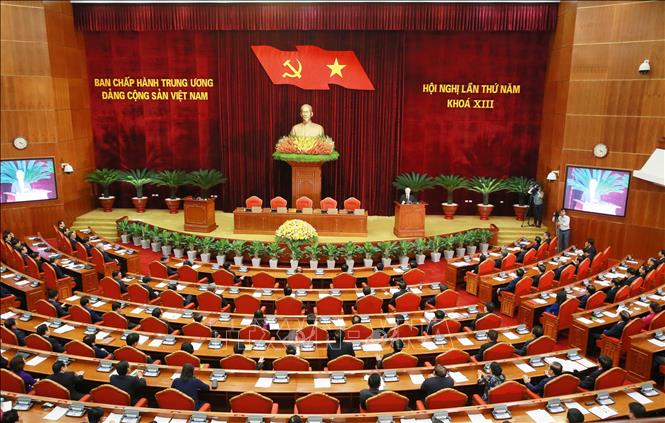
![[Photo] General Secretary To Lam, Secretary of the Central Military Commission attends the 12th Party Congress of the Army](https://vphoto.vietnam.vn/thumb/1200x675/vietnam/resource/IMAGE/2025/9/30/9b63aaa37ddb472ead84e3870a8ae825)
![[Photo] Solemn opening of the 12th Military Party Congress for the 2025-2030 term](https://vphoto.vietnam.vn/thumb/1200x675/vietnam/resource/IMAGE/2025/9/30/2cd383b3130d41a1a4b5ace0d5eb989d)

![[Photo] General Secretary To Lam receives US Ambassador to Vietnam Marc Knapper](https://vphoto.vietnam.vn/thumb/1200x675/vietnam/resource/IMAGE/2025/9/29/c8fd0761aa184da7814aee57d87c49b3)
![[Photo] The 1st Congress of Phu Tho Provincial Party Committee, term 2025-2030](https://vphoto.vietnam.vn/thumb/1200x675/vietnam/resource/IMAGE/2025/9/30/1507da06216649bba8a1ce6251816820)

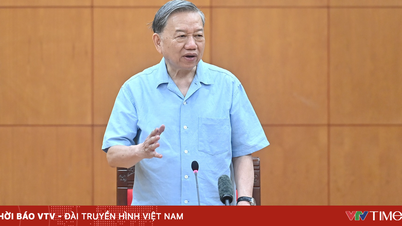

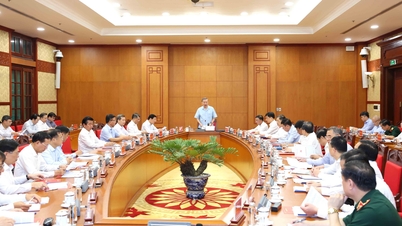












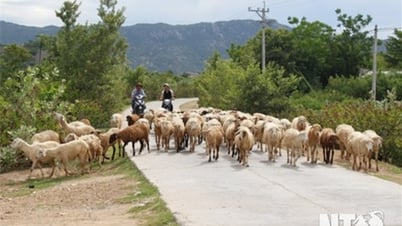
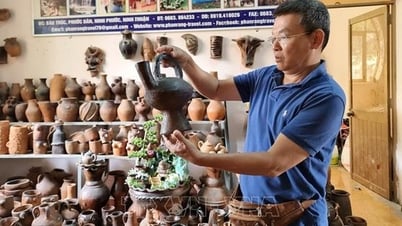

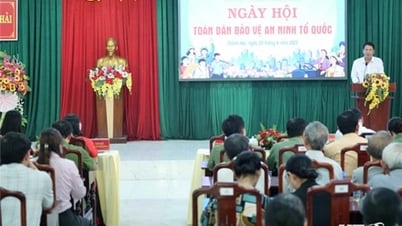







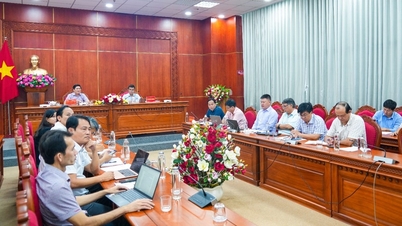


![[Photo] President Luong Cuong receives President of the Cuban National Assembly Esteban Lazo Hernandez](https://vphoto.vietnam.vn/thumb/1200x675/vietnam/resource/IMAGE/2025/9/30/4d38932911c24f6ea1936252bd5427fa)



























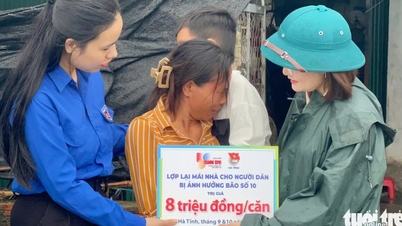
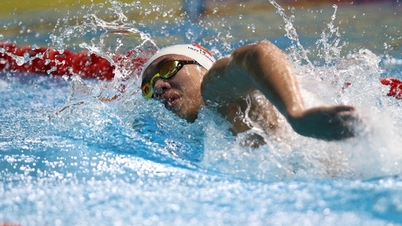
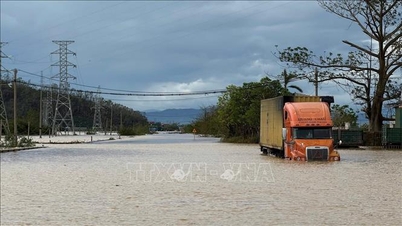


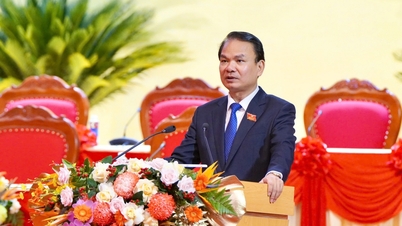
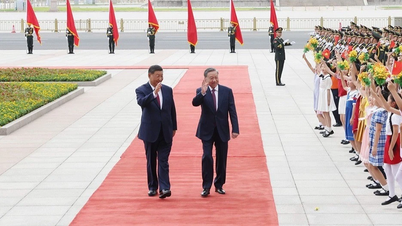
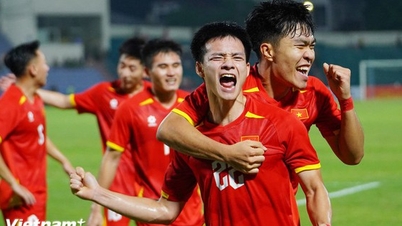

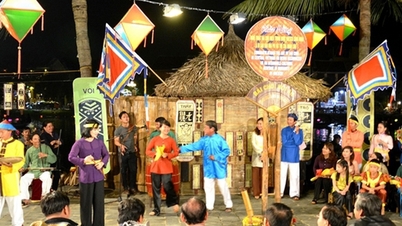



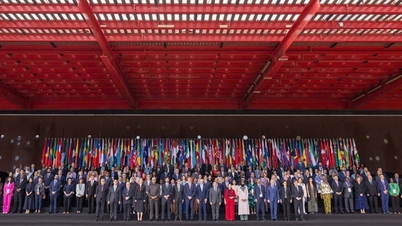


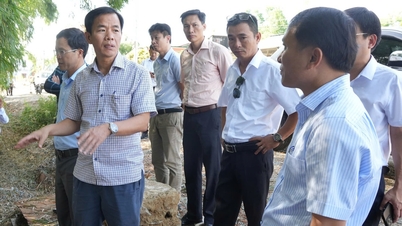


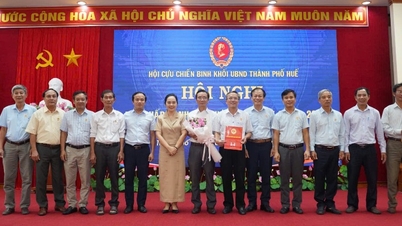
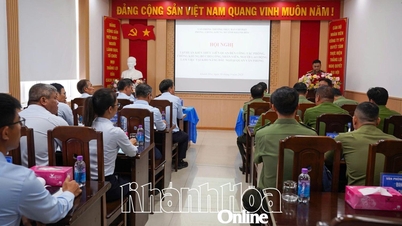
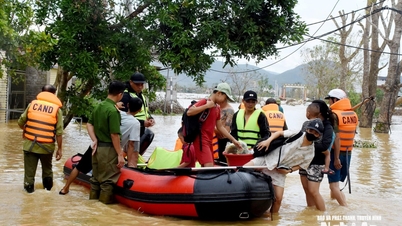














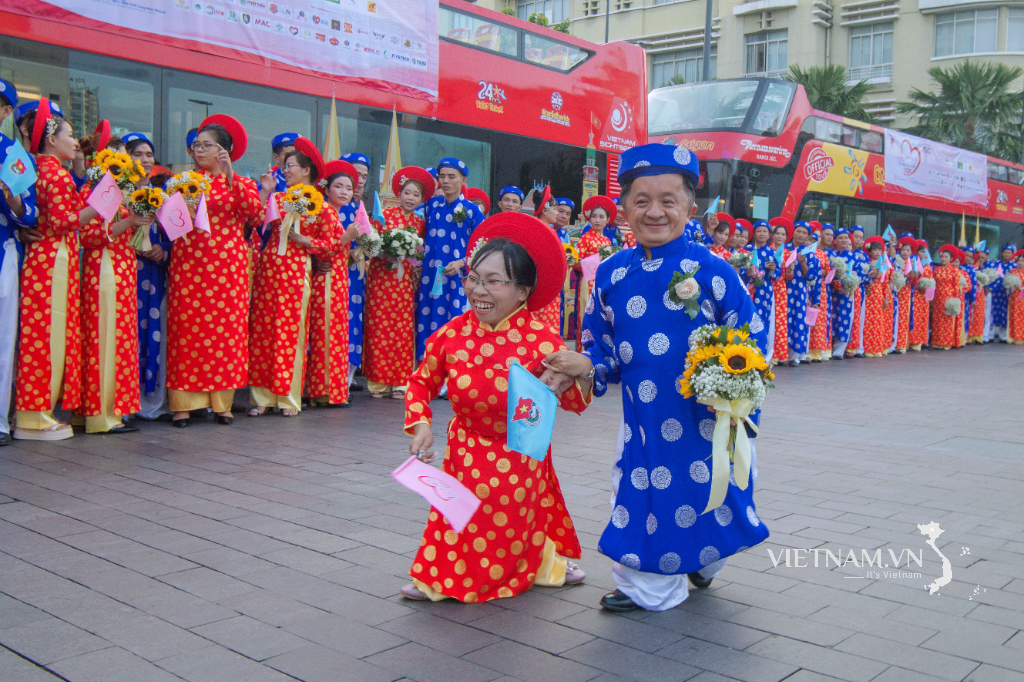
Comment (0)